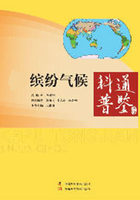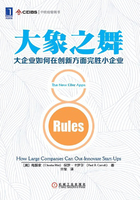Again it should be noted that prime matter is said to be numerically one in all things.
But "numerically one" can be said in two ways: first of all, of that which has a one determined form in number as, for example, Socrates.Now prime matter is not said to be numerically one in this way since, in itself, it does not have any one form.Secondly, something can also be said to be numerically one which is without the dispositions which would make it differ according to number.And it is in this way that prime matter is said to be numerically one, because its concept involves the lack of all of the dispositions which account for differentiation in number.
And finally it should be noted that although the concept of prime matter does not include any form or privation, just as in the concept of bronze there is included neither a shape nor the lack of a shape, nevertheless prime matter is never without some form and privation.For sometimes it is under one form and sometimes under another form.But prime matter cannot exist by itself alone, because by its very definition it does not have any form, and so does not have any actual existence, sincebeing in act is only through the form.
But prime matter is only in potency.And, therefore, anything whatsoever that exists in act cannot be called prime matter.
From what has been said it is evident that there are three principles of nature, namely, matter, form, and privation.But these three are not sufficient to explain coming-to-be.For whatever is in potency cannot reduce itself to act: for example, the bronze which is a statue in potency does not make itself a statue, but requires an agent which draws out from potency to act the form of the statue.Neither can the form draw itself into act from potency.
And here I am speaking of the form generated which we call the term of generation.For the form does not exist unless it exists in fact: the agent, however, exists in becoming, that is, while the thing is coming-to-be.
Besides the matter and the form, therefore, there must exist some other principle which acts, and this is called the efficient cause or, the moving cause, or the agent, or the principle from whence the movement exists.
And because, as Aristotle points out in Bk.II of the Metaphysics, everything which acts, acts only when intending something, a fourth principle must also be posited--namely, that which is intended by the agent, and this is called the end.And it should be noted that although every agent whether natural or voluntary intends an end, nevertheless it does not follow that every agent knows the end or deliberates about the end.For to know the end is necessary only in those things whose actions are not determined but which can move towards opposites, as is the case with voluntary agents;for these (voluntary agents) it is necessary that they know the end through which they determine their actions.In natural agents, however, their actions are determined, hence it is not necessary to choose those things (means)which are for the end.We may use the example given by Avicenna of the cithara (a musical instrument resembling a lyre) player who does not have to deliberate about each note of a chord since the notes are determined within it, for should someone deliberate, there would be a delay between the notes which would be discordant.All of this can be seen more clearly with respect to voluntary agents who deliberate than with natural agents--and, accordingly, it is evident a fortiori that if the voluntary agent whose deliberation is more evident, does not always deliberate, then certainly neither does the natural agent.It is therefore possible for a natural agent to intend an end without deliberation and this intending is nothing other than having a natural inclination towards something.
From what has been said it is evident that there are four causes, namely, the material, the efficient, the formal, and the final.Now although principle and cause are spoken of in a quasi-convertible way, as is said in Bk.V of the Metaphysics, nevertheless, in the Physics, Aristotle sets down four causes and three principles.Furthermore, he accepts as causes just as much extrinsic as intrinsic ones.Matter and form are called intrinsic causes of the thing due to the fact that they are the constitutive parts of the thing.The efficient and the final causes are called extrinsic causes because they are outside of the thing.But he accepts only the intrinsic causes as principles.
Moreover, privation is not named among the causes because it is an accidental principle, as was said earlier.And when we speak of the four causes, we mean the essential causes to which, however, accidental causes are reduced because everything which is accidental is reduced to that which is essential.
But although Aristotle considers principles as intrinsic causes in Bk.I of the Physics, nevertheless, as he says in Bk.XI of the Metaphysics (this is today Bk.XII, 11 70b22-30), "principle" is properly said of extrinsic causes and "elements" of those causes which are the parts of the thing, that is, of the instrinsic causes.However "cause" is used with respect to both, although sometimes one term is used for the other; for every cause can be called a principle and every principle, a cause.But, the notion of cause seems to add something over and above what is commonly called principle, because that which is first, whether or not something posterior follows from it, can be called a principle, just as the artisan is called the principle of the knife because a knife comes into being as a result of his activity:















